Volcanic
The Tongariro Crossing
“Geologic time includes now.”1
The quote runs through my mind as the mountains saturate my eyes; a feast of landscape, a surfeit of tectonic delight. There are tears running down my cheeks - cold tracks in this cool wind. I do not care. I am living.
And life is so brief.
My Father would have loved this. My friend David did.
Both are dead. Both live on.
I am here because of them.
I would like to say it starts with this view, of Mt Ruapehu humping up in the dawn the way I arch my own back like a dog in the sun to catch the warmth when it comes after a long cold night, though in truth my day started 2 hours earlier in the dark, waiting for a shuttle bus to pick me up from a street corner in Taupo - which it did - followed by a bumping swaying journey picking up other hopeful hikers then on around the shores of Lake Taupo - half glimpsed, half guessed in a ghostly glimmer of moonlight.
But it also started long before, in the love of mountains I learned from my parents and in the stories I heard of these particular mountains from my good friend - another David, a man of this country whom I met and came to know in my years living and working in Aboriginal communities of Central and Northern Australia. Stories of a cold, vibrant, volcanic place - far from the hot flat eroded sands of the Tanami Desert where I first met David - a place where the Earth is recreating itself anew, almost while you watch; where steam and smoke rise from freshly baked stone and where mineralised waters glint in weird colours under the elusive Southern sun.
David and I had some strange adventures together. He was a man with a fierce intellect and many friends who lived with an intense flame and at a frequently frenetic pace. It was one of those friendships where you think - “What do they see in me?” My tendency to introversion seemed a poor match. In between stints in the Northern Territory he was briefly living in Brisbane with his first wife and children when I came to stay for a week with my first wife (before we had our children).
David planned a house party - all his Brisbane friends would come! I would meet them all! It would be fun! He spent a whole day preparing the house - there would be flowers, decorations, food and drink, music, laughter and merriment!
And from the sounds in the evening and through most of the night there was plenty of all of that and more but I - paralysed by social anxiety - stayed in my bedroom through the entire event and saw no-one, emerging in mid morning only after all the guests had gone.
My long ago ex-wife was just irritated by this, but David seemed to like me even more. We spent the day together Guerrilla Gardening - planting cannabis seedlings in garden beds in public parks around the city - an activity where David’s sense of fun coincided much more closely with mine.
So now in his memory I am here where the road ends at the start of the Tongariro Alpine Crossing, with a day ahead, the volcano above, the first dawn sunlight flooding in and the thudding in my heart which always comes in the presence of a mountain.
This is the North Island of Aotearoa - New Zealand on most maps - on a mid April day three weeks ago. Meg and I have been wandering in an unplanned way - just deciding each day where we might go next based on weather and mood and a loose list of “places we might like to see.”
Many years ago on an alpine climbing trip in Aoraki National Park I came across a pamphlet in a mountain hut with the words “New Zealand has a vigorous maritime climate” which - in a week of battling blizzards and dodging avalanches - turned out to be a significant understatement, so I learned not to take good weather here for granted. We have driven to Taupo, just outside Tongariro National Park, because the weather reports are unexpectedly optimistic but even so I am amazed to see a cloudless sky crystallising above the sharp outline of the volcanos - jagged snow tipped Ruapehu to the South (highest peak on the North Island), and the perfect cone of Ngauruhoe directly in front.
Already I know I have been given a gift, but I try not to think ahead. Instead, I try to live and savour each footstep, each fleeting moment. This is a place I might never have seen, may never see again. Every stone has significance, every leaf of every bush, each lichen and moss.
I think of my Father - an Electrician, a Teacher of Geography and a lover of all the natural world who started walking in wild places 80 years ago now, when that was not something normal people commonly did. I think of all the places he then took me and my Brother and Sister, when we were children. I stoop to pick up a handful of the coarse gravelly soil. “Scoria,” I hear him say in my head and, further on - where a creek has cut through a geologically recent andesite lava flow to reveal the bedrock beneath - “Glaciated! Look at the scratch marks in the rock.”
This is a place of ice, overlaid with fire, and now water and growing things which are softening the edges and creating life.
Which is what love does, after the the ice and the fire of grief. First you are frozen, wordless, sobbing, then you are seared with pain. In the end, love grows again from the water of your tears and the soil of memory and the hard edges erode and soften, and you live, and go on.
I walk onwards, not alone in my thoughts because my Dad is there in my head with his geology and geomorphology, and Meg is there also; her artist’s eye has taught me so much about colour, texture, shape and light…. I find myself taking photographs just for her, knowing how happy she is that I can be here when she cannot, and that I will come back to her tonight with words and images, and with love.
I’m not alone in reality either because this is a very popular walk - heavily promoted and a magnet for many. There were at least 60 or 80 people milling about at the start of the track - couples and groups, some of them with a Guide, and a few other “solo” walkers. We are strung out along the track now and I can see even more people ahead of me. Some I overtake; some overtake me. Everyone has their own natural pace.
We have 20 kms to cover with a lot of steep uphill to the crest of the range and an even larger descent on the far side. I entertain myself observing the different styles of clothing and equipment. Trekking poles always make me laugh.
The temperature is only a few degrees above freezing and everyone is heavily clothed but the exercise is intense and there is no wind down low. At the start of the long climb to South Crater I strip off my long pants and my jacket too. Now in shorts and a T shirt I get a few surprised looks but the altitude gain ahead is severe and I know my own body. The track up the mountainside is extremely steep and sustained and before long I feel comfortably warm. By the top, everyone is hot, and some don’t make it any further - turning back.
Looking down, I can see the long Mangatepopo Valley we have walked up, and the road we came from beyond. Even - in the furthest distance to the West - the peak of the Mt Taranaki stratovolcano. The world makes mountains look small.
Crossing the crest and leaving the valley behind we are now at the foot of Ngauruhoe. The summit is Tapu - sacred - to the Maori people, and I am happy to walk on by, across the flat cinder plain of South Crater and then up the crater wall beyond. I don’t need to climb a mountain to adore it.
And at last, I am in the sun. It floods the world and fills the crater the way magma did - just a moment ago in the memory of the earth. Ngauruhoe looming above is only an infant. 2,500 years ago it did not exist at all, but in the the short time since then it has grown to dominate the landscape of Tongariro. The most active volcano in the country, Ngauruhoe erupted 45 times in the 20th Century, but it has been quiet since 1977.
One last ascent and I reach the summit of Red Crater - the highest point of the track.
The horizon unfolds itself around me, a pyroclastic flow of shape, of colour, of texture. I am overwhelmed, deluged, submerged - buried in beauty.
My tears well up spontaneously, like a volcanic spring. Everything is as David told me, long ago. I want to tell him that. I want to say thank you. I want to say sorry for staying in the bedroom and missing your party, mate. I want to laugh with him about the night we repainted the huge billboard sign at the Ranger Uranium Mine so that it read “Danger - Uranium Mine!” I want to drive across the Tanami Desert with him in a beat up old ute heading for an initiation ceremony with our Warlpiri hosts. I want to sit around a campfire with him again.
I want to apologise for not coming to Darwin to see him when he was unwell with Parkinson’s Disease and an old friend could have been a joy in a hard time.
I want to have been a better friend than I was.
I feel the cold wind on the tracks on my cheeks and I stand there a long, long while as other people walk by, each with their own life, their own loves, their own griefs, regrets…. and also joy.
Then I walk on too, down to the Emerald Lakes, glittering and steaming - perfect jewels recessed into the slope, held up to mirror the sky.
Last of all the Blue Lake, catching clouds, looking serene, seeming eternal, but like everything here it is temporary too. The Earth will shift. New fire may come. Or maybe erosion will simply happen, and these soft new mountains will wear away the way a life does. Then something new will come.
Myself, I was simply passing through.
I paused above the Blue Lake, looking back at the mountains one last time.
Here - still high up - my phone had a faint signal. I chose the best photos I could, and I sent them, with a message, to another old friend - David’s lover and life companion, Michele.
She replied within seconds.
Then I turned, found the long track down to the valley, and returned to the world beyond.
Quote from Edward Abbey’s book - “Desert Solitaire: A Season in the Wilderness”


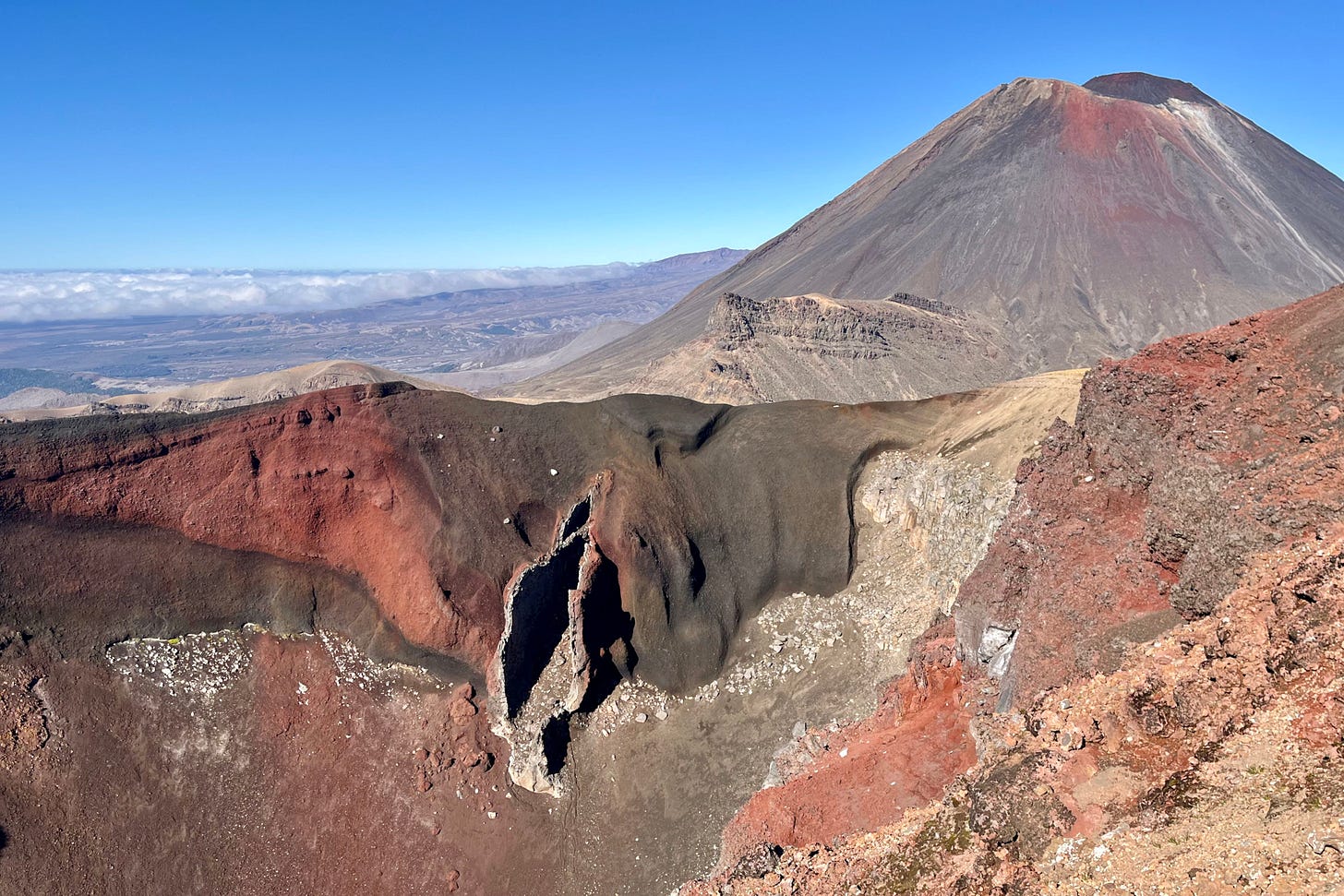
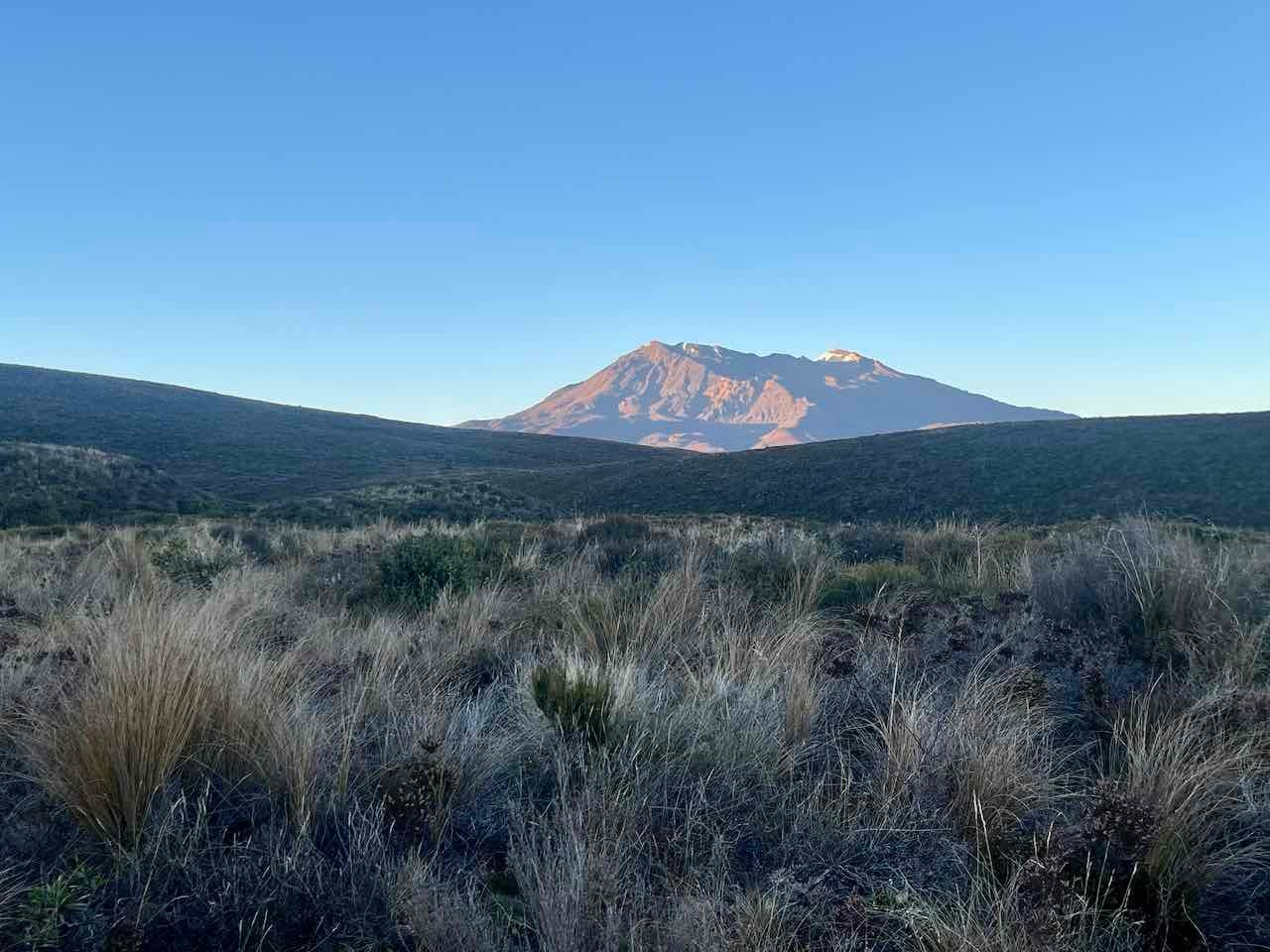
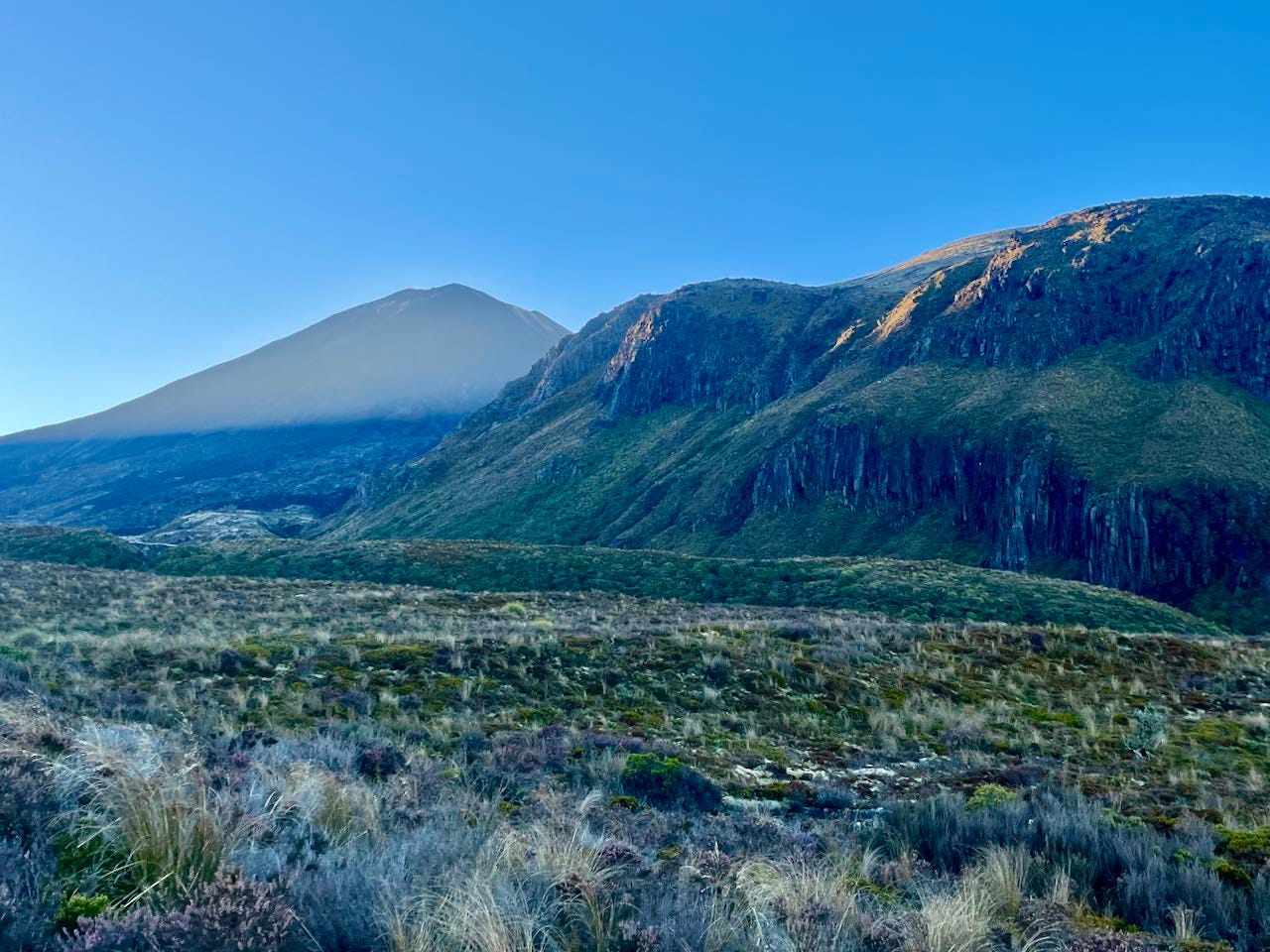
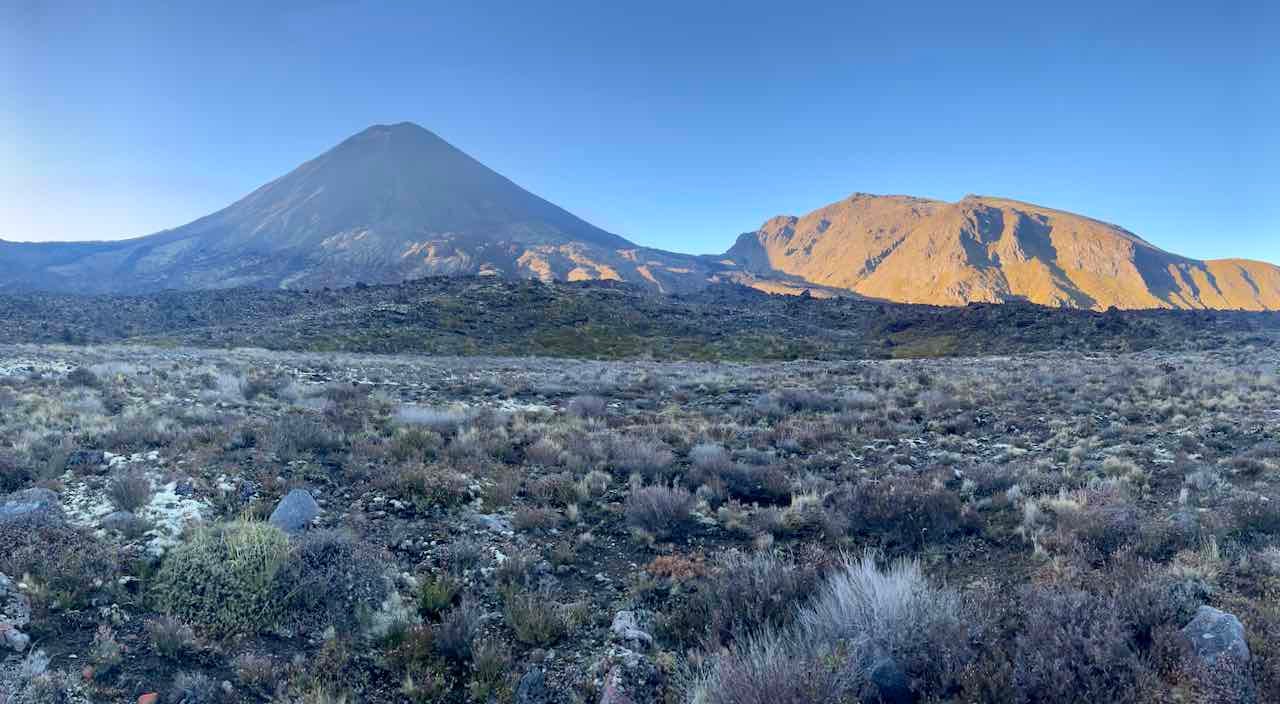
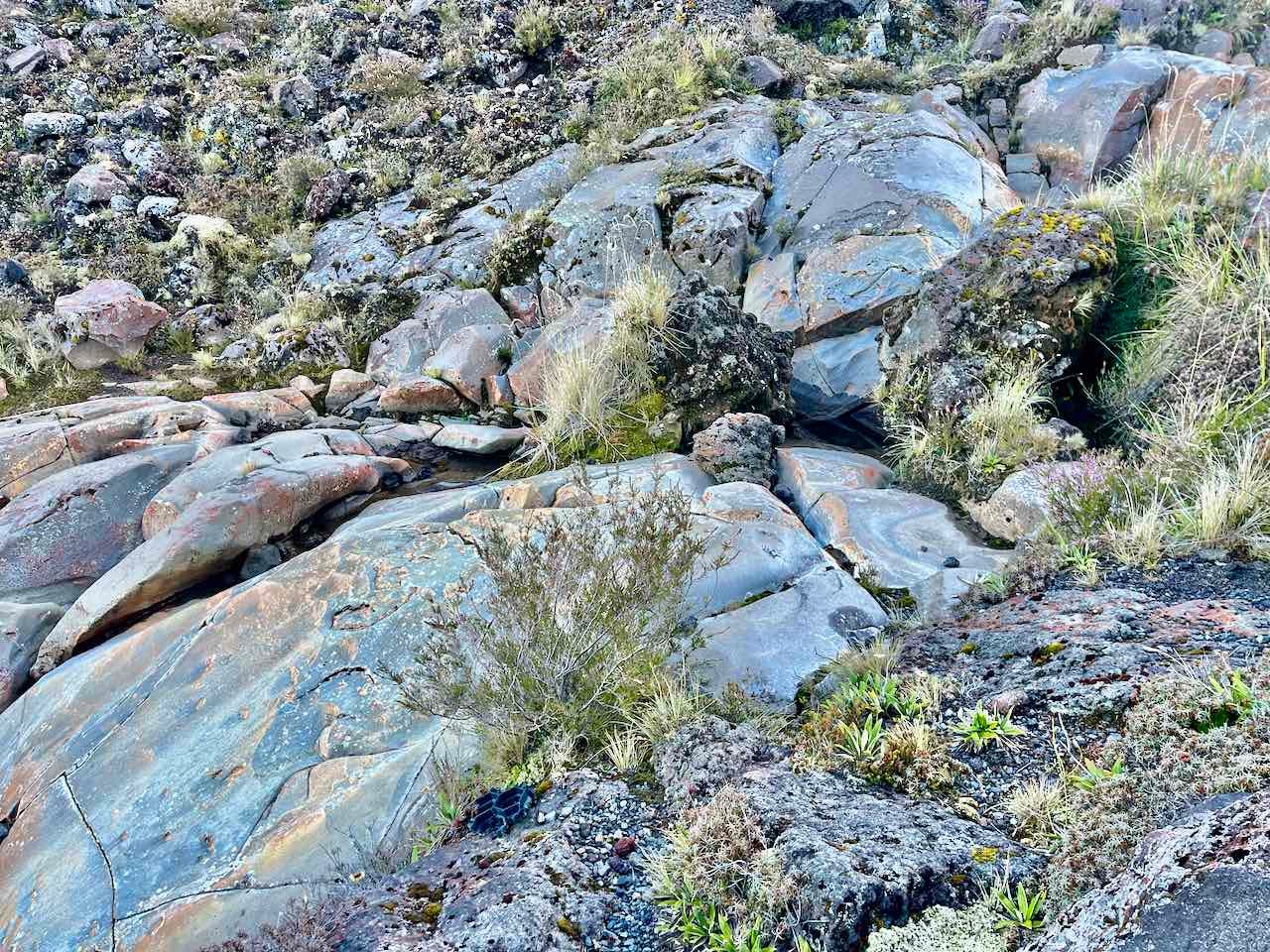
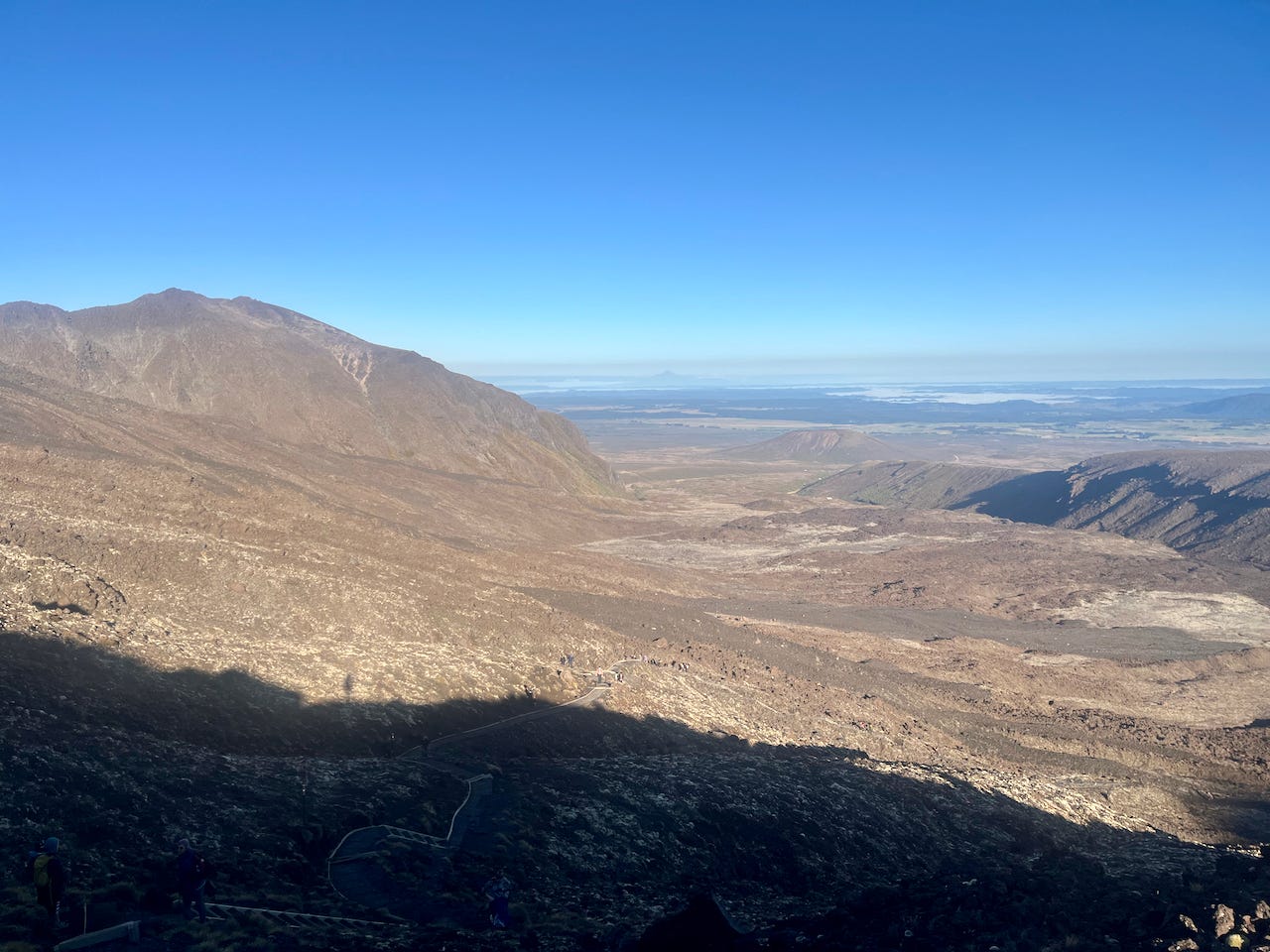
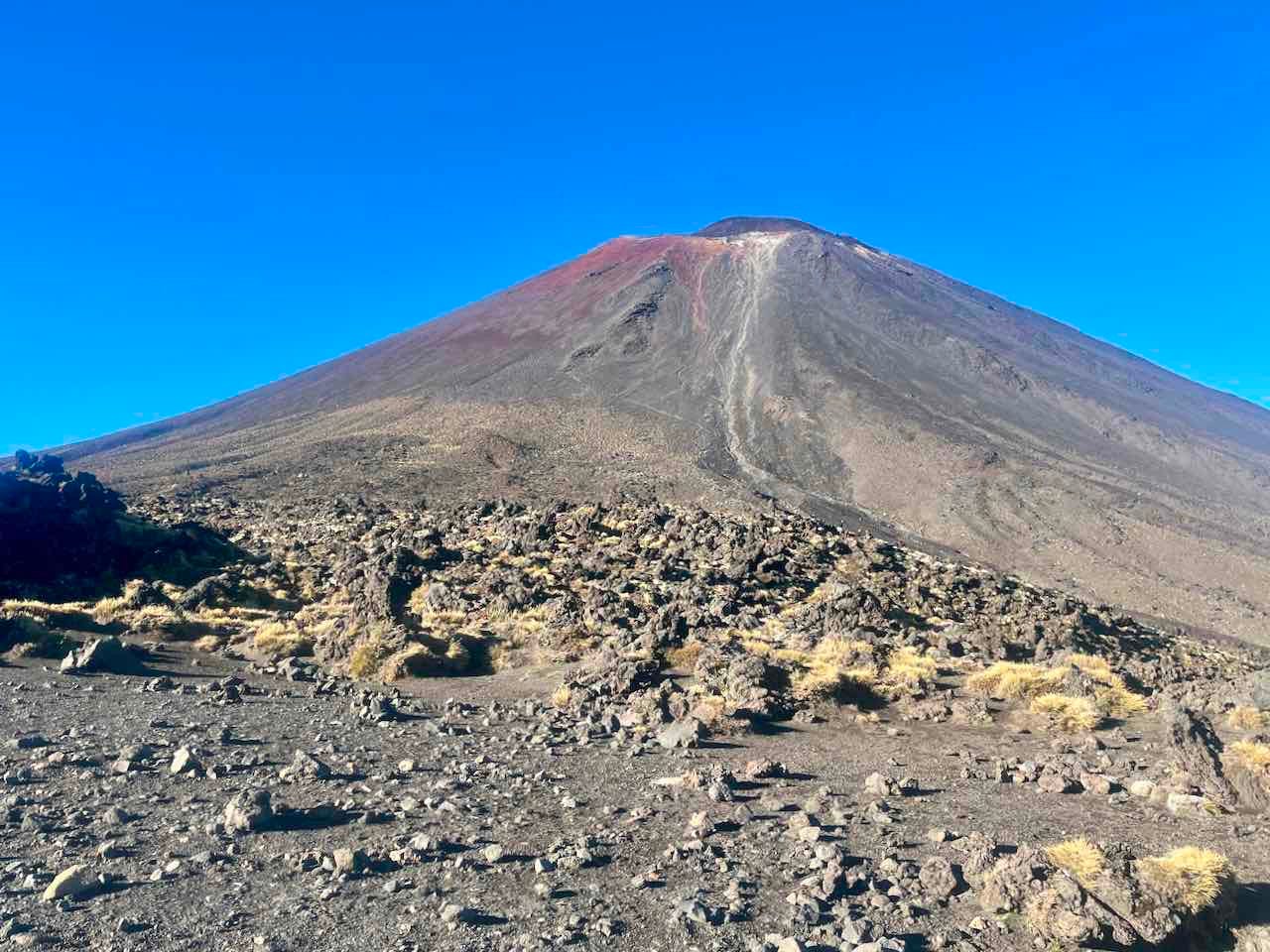
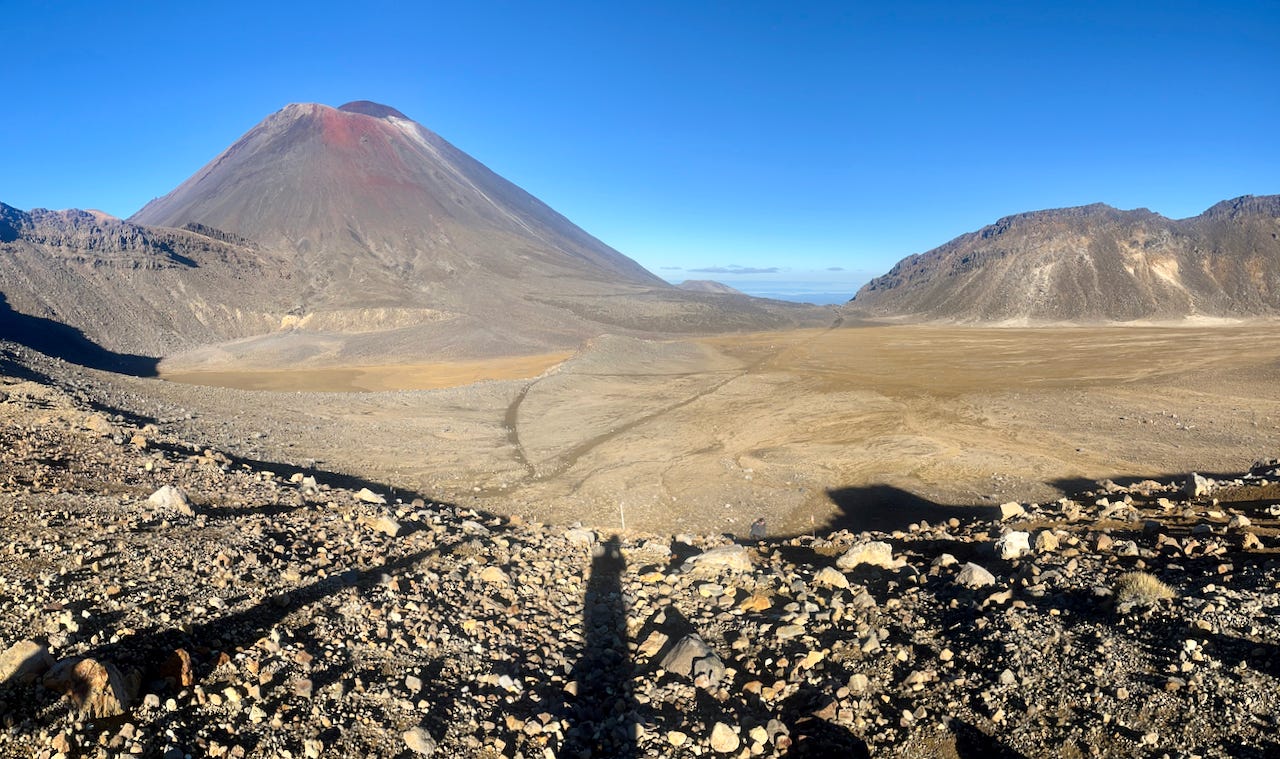
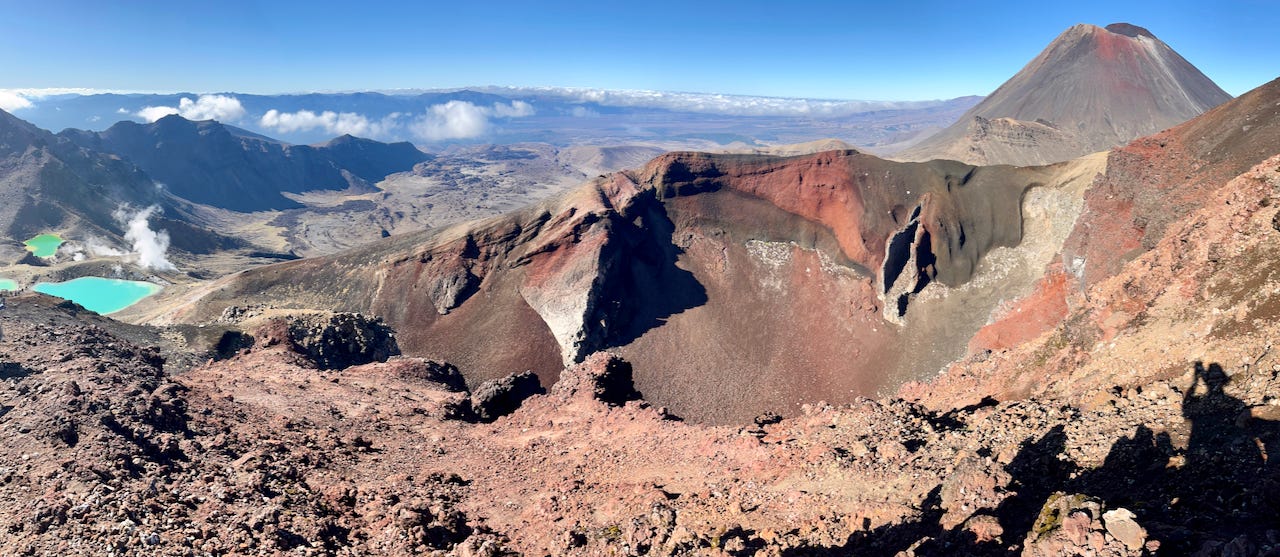
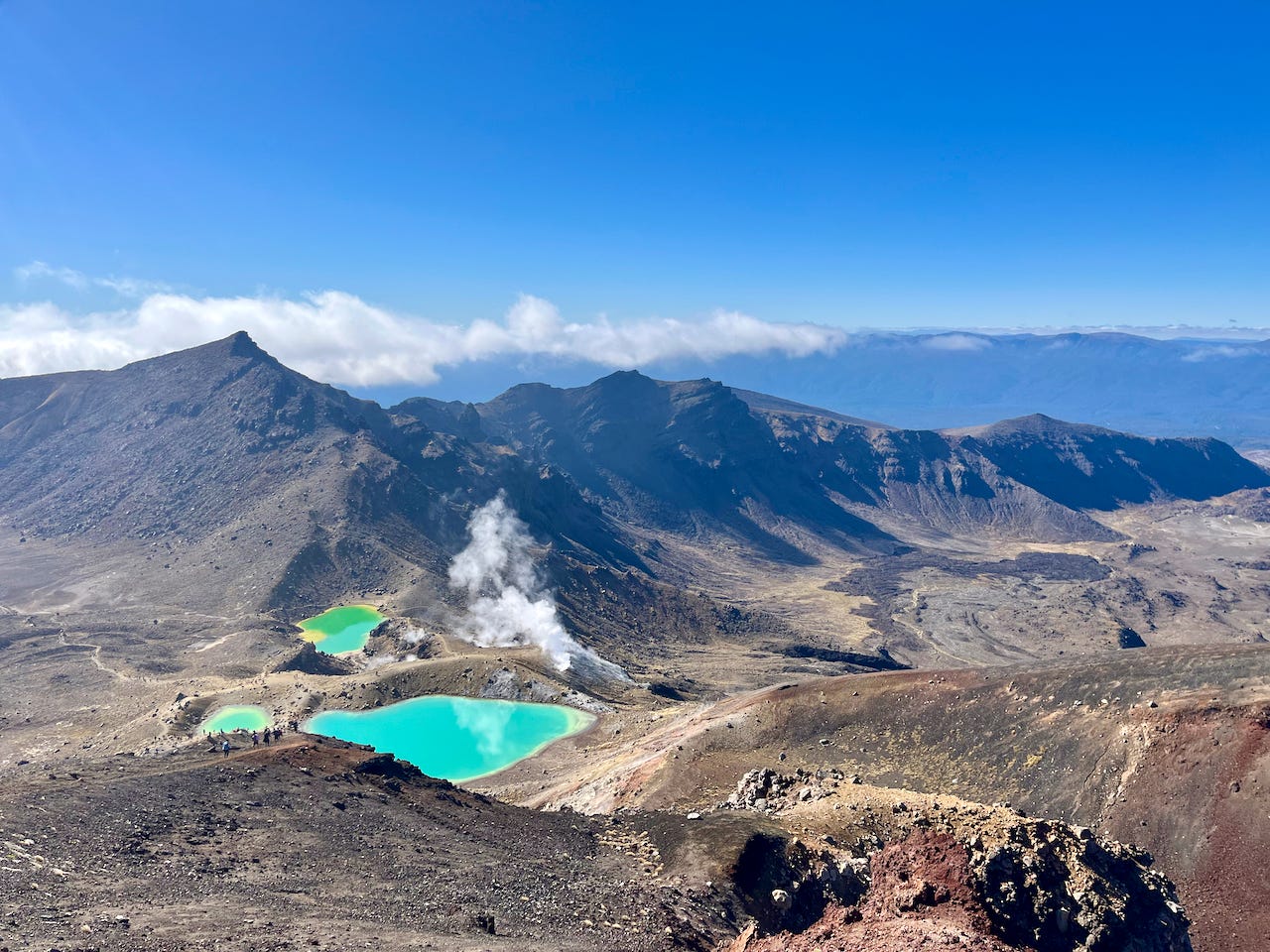
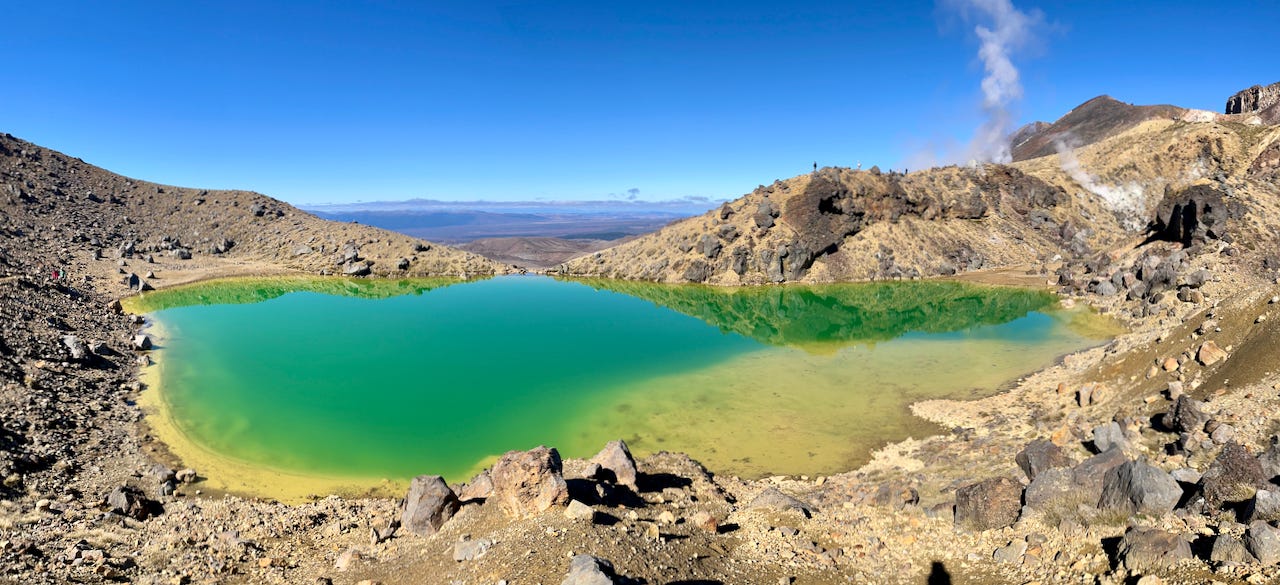
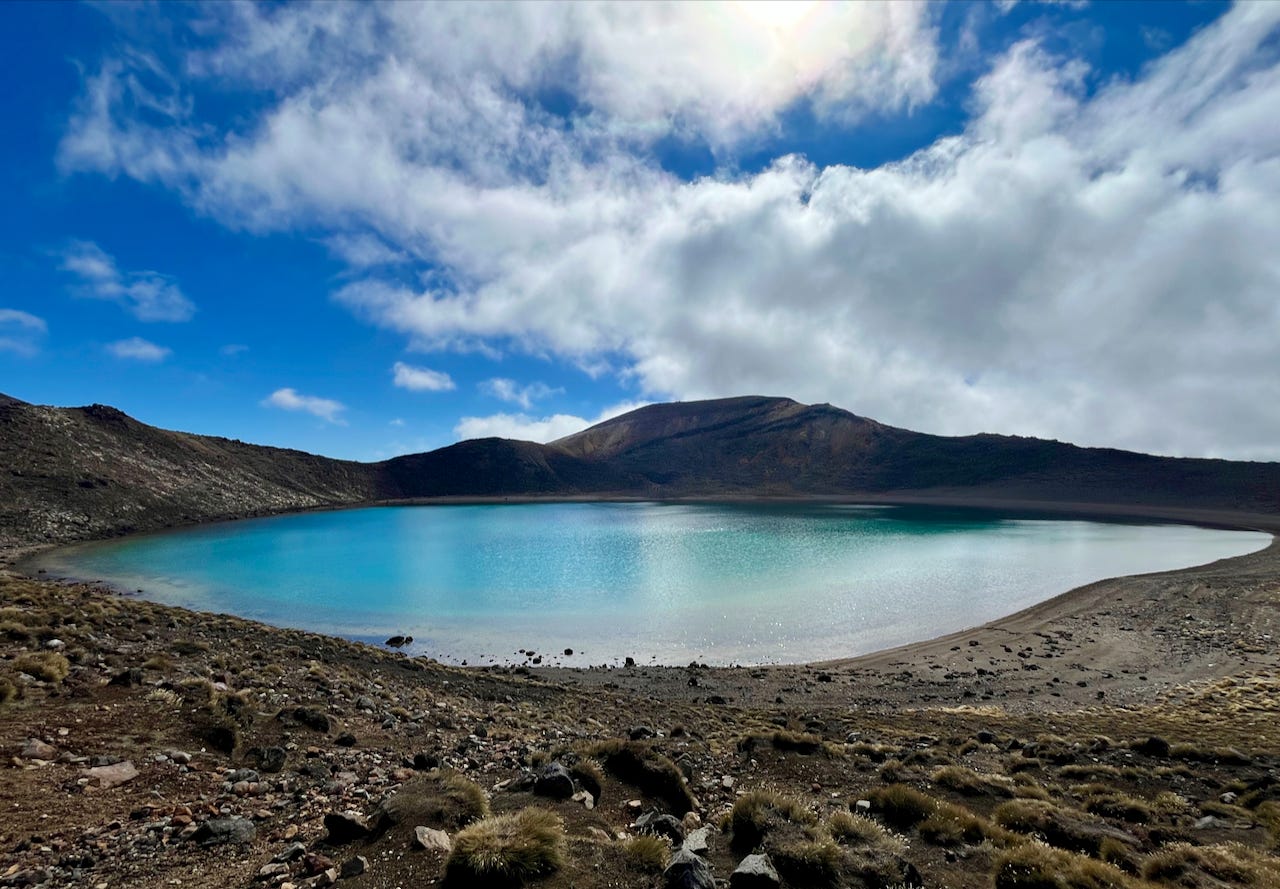
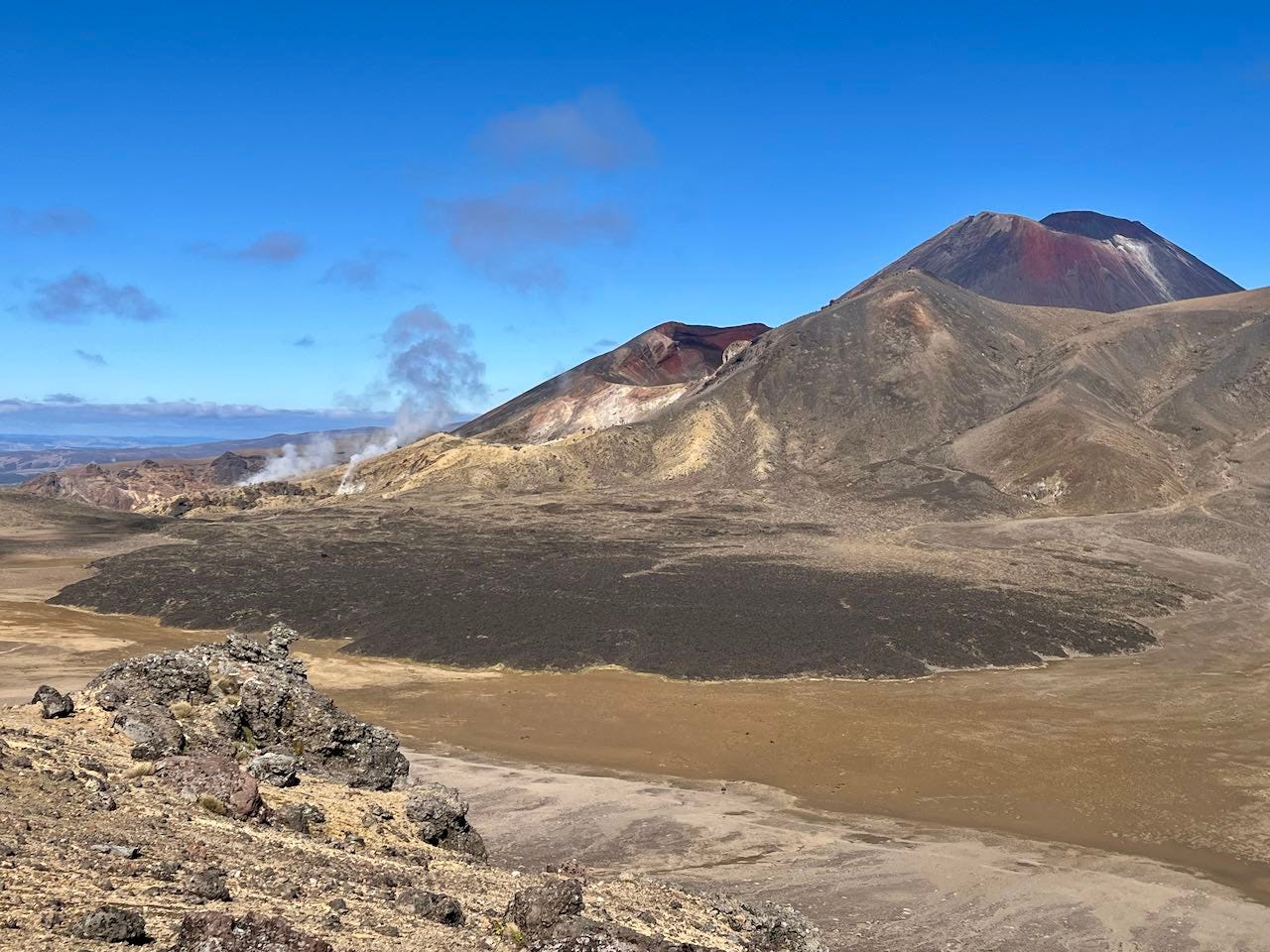
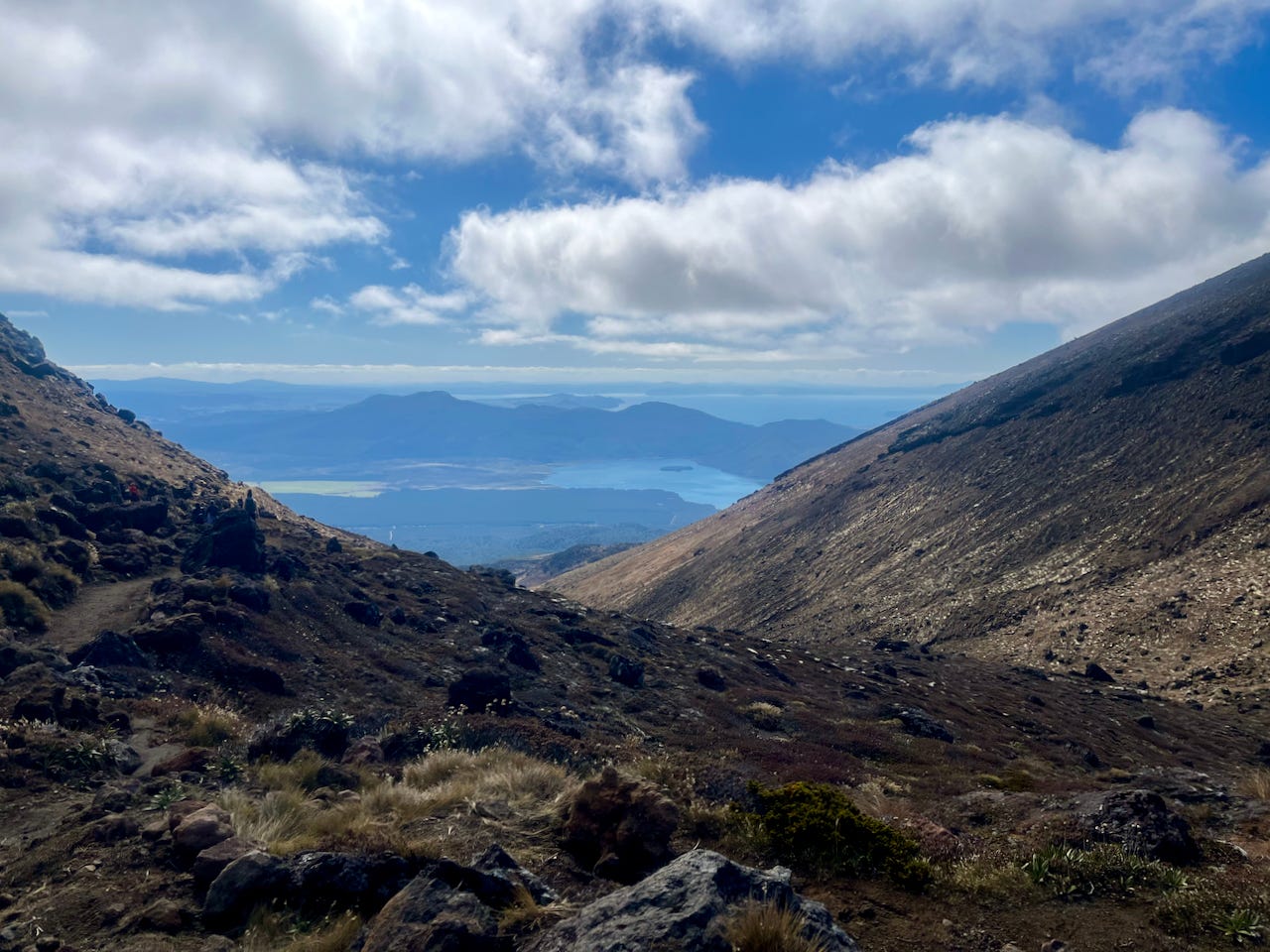
This story of a trek in the mountains is told in language so poetic it stopped me in my tracks a few times. I particularly liked this gem:
"This is a place of ice, overlaid with fire, and now water and growing things which are softening the edges and creating life.
Which is what love does, after the the ice and the fire of grief. First you are frozen, wordless, sobbing, then you are seared with pain. In the end, love grows again from the water of your tears and the soil of memory and the hard edges erode and soften, and you live, and go on."
In many ways David, this post is a tribute to your Dad, your friend Dave, and your wife Meg - who is never far from your thoughts. What a fine tribute it is! And what great pictures to go with it!
It's as if these powerful words are a synthesis of you and David's collective introspection.
Peace and love sent your way, Dave.
Your friend, Mahdi.